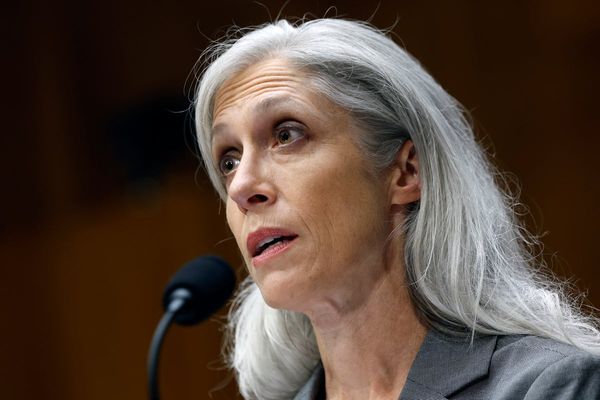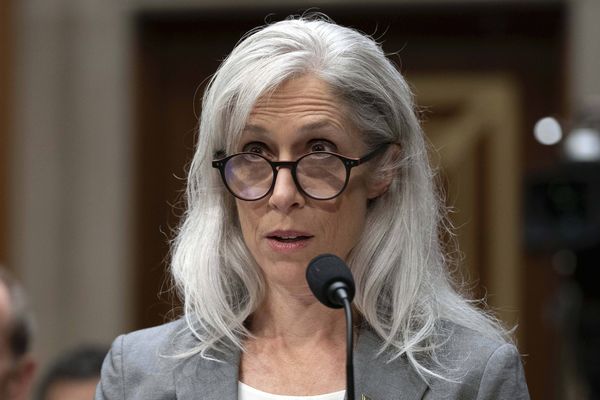BP reported record fourth-quarter earnings, but still fell short of consensus views in a mixed report early Tuesday. The company provided some details of a downshift in its aggressive move toward renewables, as it returns its primary focus to oil and gas production. BP stock jumped Tuesday.
BP Earnings
Estimates: Analysts predicted Q4 earnings growing 35% to $1.66 per share, according to FactSet. Wall Street forecast revenue edging up 6% to $55.39 billion. Free cash flow was expected to retract 3% to $4 billion while analysts saw capital spending increasing 32% to $4.78 billion in Q4.
For 2022, Wall Street forecasts EPS shooting up 131% to $8.84 and revenue growing 40% to $230.1 billion.
Earnings: Earnings came in at $1.59 a share, up 29%. Revenue topped expectations, rising almost 33% to $69.3 billion. Free cash flow shot up 29% to $5.33 billion.
Replacement costs profit, which BP uses as its profitability gauge, was $4.8 billion for the quarter. That is up from $4 billion a year ago, but just below the $5 billion projected by analysts. It is also well below the $8.2 billion reported in Q3.
Replacement cost is how much it costs the company to return to proven reserves the oil and natural gas produced during a period.
For the year, BP's posted profit of $27.6 billion, or $8.74 per share. That topped its previous record of $26 billion from 2008. The 2022 results included a $25 billion write-down on loss of Russian assets.
BP Cuts Production Reduction
The U.K.-based energy giant anticipates oil and gas production to be around 2.3 million barrels of oil equivalent per day in 2025. By 2030, BP expects to be producing 2 million barrels of oil equivalent per day. That would be about 25% below BP's 2019 production, down from the company's previous goal of a 40% reduction.
These numbers exclude BP's production drop from stopping oil and gas operations in Russia. BP reported that the removal of Russian production in 2022 resulted in a 40% drop compared to 2019.
Prior to the Q4 report, plans called for BP to cut oil and gas production by 40% by 2030, compared to 2019 levels. BP CEO Bernard Looney has also said the goal is to increase alternative energy investments to around 50% of total capital spending by 2030.
The company on Tuesday said it plans to increase spending by up to $1 billion per year on both oil and gas production, and renewables, including hydrogen, bioenergy and electrical vehicle charging networks.
"We need continuing near-term investment into todays energy system — which depends on oil and gas — to meet today's demands and to make sure the transition is an orderly one," Looney said in a statement Tuesday.
Company executives on the earnings call also told investors the company will continue to aggressively invest in "transition growth engines."
BP Stock
BP stock popped 8.3% to 37.73 Tuesday during market trade. Through Tuesday, shares have increased about 8% since the beginning of 2023. BP stock has formed a flat base and is rising toward an official 36.21 buy point, according to MarketSmith.
BP stock has lagged behind Exxon Mobil and Chevron in recent years. Since the end of 2019, BP stock is about even. However, shares have rebounded about 156% from Oct. 2020 lows of 14.74. Exxon Mobil stock has powered up around 260% since Oct. 2020.
BP stock ranks 3rd in IBD's Oil & Gas-Integrated industry group. Shares have a 90 Composite Rating out of 99. The stock has a 75 Relative Strength Rating, an exclusive IBD Stock Checkup gauge for share-price movement. The EPS rating is 79.
Throttling Down On Renewables
Europe's big energy names, including BP, have been under pressure for years to move quickly toward renewable energy. However, as BP stock and other Europe-based supermajors lag behind U.S. based giants Exxon Mobil and Chevron, leadership has begun to push back, declaring that alternative energies profit shareholders less than fossil fuels.
On Feb. 1, The Wall Street Journal reported Looney plans to cut back elements of the oil giant's push into renewable energy.
Disappointed in returns from the company's renewable energy investments, Looney plans to pursue a pared-down alternative energy strategy, according to the Wall Street Journal. The BP CEO, to maximize profits, is also looking to trim future investments in solar and offshore wind, switching focus primarily to oil and gas operations.
This is an abrupt shift in messaging from the company that, two-decades ago attempted a rebrand from "British Petroleum" to "beyond petroleum."
BP earnings Tuesday come on top of reports from Exxon Mobil, Chevron and Shell, which combined for more than $132 billion in profit during 2022. The three energy giants also returned $78 billion to shareholders through buybacks and dividends throughout the year.
BP Stock: Merger Speculation
On Jan. 25, Citigroup analyst Alastair Syme provided a heads-up on potential industry consolidation. Exxon Mobil and Chevron could potentially look at buying Europe-based supermajors BP, Shell or TotalEnergies, he wrote.
Syme wrote that shares of BP, Shell and TotalEnergies have been run down by ESG investing and moves to transition away from oil and gas.
Halliburton Stock, Baker Hughes And SLB Plan To Return 50% (Or More) To Shareholders
"Markets are unlikely to close the gap by themselves: The cost of equity of European oils remains handcuffed by investor and political headwinds," Syme wrote. "What is really needed is for the industry to arbitrage this value itself."
The analyst added that if an acquisition takes place, the "prize" for Exxon Mobil or Chevron could be considerable.
"We look at the strategic imperative, financial accretion and political headwinds of either of the two U.S. IOCs (Exxon or Chevron) potentially looking to try and acquire one of their key European competitors (BP, Shell or TotalEnergies)," Syme wrote.
BP Stock: The Oil Market
Crude oil prices rebounded Tuesday for a second consecutive day, amid optimism about a China reopening recovery.
U.S. crude oil futures advanced 4.4% to $77.39 per barrel. Brent crude prices rose 3.4%, to $83.73 per barrel. On Sunday, The European Union's price caps and ban on seaborne imports of Russian oil products went into effect.
In late January, U.S. crude had crept back up to around $80 per barrel. Prices regained support above the 50-day moving average line for the first time since mid-November. However, last week, U.S. crude oil inventories data pushed prices back down below $76 per barrel.
The main question investors and analysts are looking at is how much will China oil demand pick up with the Lunar New Year over and the Covid wave seemingly fading?
Over the weekend, the International Energy Agency's (IEA) Executive Director Fatih Birol said China's economy could be poised for a stronger-than-anticipated rebound that will boost demand for crude, Bloomberg reported.
The IEA has already produced an optimistic oil demand forecast estimating that China will boost 2023 global oil demand to record highs. Estimates from IEA forecast China's reopening will drive global oil demand to 101.7 million barrels per day (bpd) in 2023, up by 1.9 million bpd from 2022.
Please follow Kit Norton on Twitter @KitNorton for more coverage.







